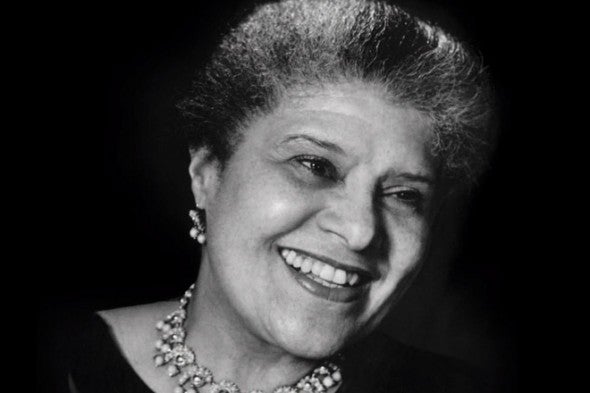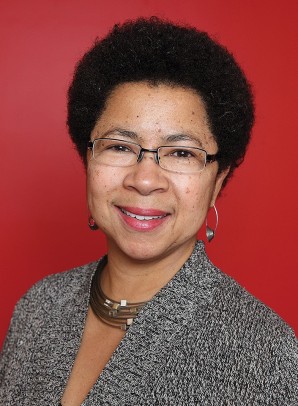Documenting a ‘large, unconventional life’

Anthropologist and activist Eslanda Robeson, wife of singer and actor Paul Robeson, is the subject of a new biography by UIC historian Barbara Ransby.
Researching the eventful life of Eslanda Robeson has been a long journey of discovery for UIC historian Barbara Ransby.
As a Columbia University undergraduate, Ransby read about Eslanda’s husband, Paul Robeson, the famous actor, singer and social activist. She discovered some of his wife’s writings through archival research.
Remembered by many as Paul’s spouse and business manager, Eslanda established her own distinguished career as an anthropologist, author and activist.
Her influence on global affairs was mainly through articles, books and three decades of diaries that exposed injustice, analyzed international policies and highlighted the work of diplomats and anti-colonial leaders.
“When I began to think about a new research project, the breadth of her experiences was still on my mind and we got reacquainted, so to speak,” says Ransby, director of gender and women’s studies and professor of African-American studies, gender and women’s studies and history.
After six years of research that drew primary material from five continents, augmented by Eslanda Robeson’s own writings, Ransby produced the new biography, Eslanda: The Large and Unconventional Life of Mrs. Paul Robeson (Yale University Press, 2012).
The book details Eslanda Robeson’s life, work and interests in support of anti-colonialism, the rights of women, and progressive and radical politics.
She was born in Washington, D.C., in 1895, overcame a difficult childhood and attended UIUC before eventually earning a degree in chemistry from Columbia University. She later studied at the London School of Economics.
Her life was one of high drama. She traveled to the front lines of the Spanish Civil War in 1938 and journeyed by boat down the crocodile-infested waters of the Congo River in 1946. Two months after the 1949 Chinese revolution, she visited Mao Zedong’s newly-formed communist republic.

Eslanda Robeson “stood on the precipice of history,” says biographer Barbara Ransby. Photo: Jenny Fontaine/UIC Public Affairs
She attended the founding meeting of the United Nations and traveled to Nazi-occupied Berlin and Stalin’s Russia.
“She was fearless in her pursuits and stood on the precipice of history on more than one occasion,” Ransby says.
As a United Nations correspondent, she wrote for progressive and African-American publications for nearly two decades. She was most prolific from 1950-58, when the U.S. government suspended her passport.
Ransby’s book also relies on FBI and British intelligence documents.
“Because of their political views they were spied upon, forced to testify before government committees, and ultimately lost their livelihood and home,” Ransby says.
“Eslanda was defiant and resilient in the face of the many challenges in her life.”
Her relationship with Paul was one of those challenges. The couple shared an open marriage for most of their complicated 44-year partnership.
Guiding Paul’s early career did not deter Eslanda from pursuing her own interests.
“She was sometimes ‘overshadowed’ by Paul’s larger-than-life persona but she was never dominated by Paul,” Ransby says.
“She was a fiercely independent woman with more than her share of toughness, determination and talent.”
Ransby describes the role of biographer as a “respectful voyeur.”
“I read Eslanda’s personal thoughts and musings in her diaries with care, curiosity and skepticism,” she says.
“I had to always ask the question – Are these her genuine feelings or is this the message she is crafting for her future biographer, or both?”
Eslanda Robeson, Ransby says, was “a woman who defied convention, expectations, and even her own government to express her political views, forge connections with the larger world, and make a career for herself at a time when most black women lived very circumscribed lives.”
